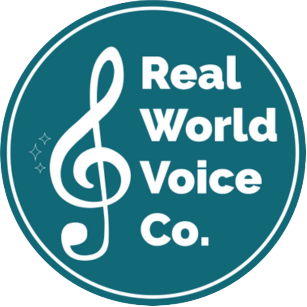5 Things You Need To Know Before Starting Your Voice Studio
Hint hint...it's not all about singing.
One of the biggest barriers that young teachers face is the fear that they don’t know enough.
It often presents as Imposter Syndrome; “persistent doubt concerning one's abilities or accomplishments accompanied by the fear of being exposed as a fraud despite evidence of one's ongoing success” (Merriam Webster) This is really common in early career individuals of any occupation.
Today we're going to try to dispel this fear with knowledge.
Here are 5 things you need to know to teach singing, and you probably already know them.
The following things are mostly beyond music. If you are wanting to teach singing, I'm assuming you likely already know how to sing on your own. The best thing you can do is start teaching now and work on these skills as you go!
1.Know How to Learn
This might be the most important thing on this list. Best practices and knowledge about the voice are ever changing thanks to modern technology. The best teachers are those who are keeping track of new research and adjusting their teaching to accommodate this new information.
2. Know How to Update Your Beliefs About Singing and Teaching
Following along with the previous pointer, you should be flexible in your approach to teaching. Not only because there may be a need to update your technique, but because each student learns differently.
Don’t let yourself fall into the trap of stagnation.
Be aware of the needs of each student and adapt when needed.
To use a statistical term that applies here, seek to be a good Bayesian: Bayesian thinking means you update your beliefs when presented with new information.
For example: You attend a seminar where you learn that singers who want to belt should take smaller breaths, where you had been teaching large breaths. You then go armed with your new information and begin teaching your students to take smaller breaths when belting. Belief updated!
3. Know Basic Vocal Function
This is really important!
Even if you are not talking to your students about this knowledge, knowing how the main structures involved in singing work together can be revolutionary for you as a teacher and a singer.
If you did not have access to this information in your studies, have no fear!
There are fabulous tools available online and in literature for you to learn from.
4. Know Your Own Limits
It’s important to understand your strengths and weaknesses as a teacher.
If you feel uncomfortable teaching a certain style or genre, you have 2 options:
A) learn alongside your student by taking lessons in that style or learning from others.
OR
B) be willing to refer the student to another teacher.
Option B is a great way to also build relationships with fellow teachers!
5. Know Other Teachers
We talked about this in the first blog of this series, but it is so important to have a community of people in your field.
Other teachers will be your biggest source of support, inspiration, and learning.
Find mentor teachers who are willing to answer your questions or even give feedback on your teaching.
Find other early career teachers who understand what you are experiencing.
The best advice I can give to new teachers is to just start teaching.
The first lesson is the scariest!
Lastly…
Use the suggestions above as a guide. Check-in periodically to be sure you are learning, being reflective, and building community. There are, of course, many other things to know about singing, but if you are building the skills above, the others will develop as well.
Next week is the last installment of the Beginner Teacher Series. I’ll be sharing the best ways to find students for your independent studio. Subscribe below or to my social media to be notified when the next post is live!
Want more? Subscribe below to stay up to date with the goings on a Real World Voice Co!
Meet the Author
Jennifer Burks is a professional voice teacher and soprano with over 17 years of formal training and degrees in Vocal Performance from the University of Arkansas and Vocal Pedagogy from New England Conservatory of Music (NEC). She is an active performer and has won prestigious vocal competitions such as the 2022 Rhode Island Civic Chorale. Beyond her studio, Jennifer is an active member of NATS, PAVA, and The Voice Foundation and is the incoming Auditions Chair of the New England Chapter of NATS. In her free time, she enjoys running, reading, sailing, and cherishing every musical moment.


